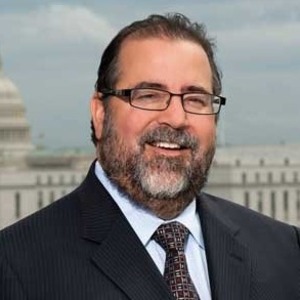New Poll Shows Clear RFS Support

June 16, 2015
BY Bob Dinneen
Every Fourth of July, in the slowly darkening moments between dusk and the first pop of fireworks, I take advantage of the down time to read the Declaration of Independence to my family. The Fourth of July gives us all a moment to reflect on the freedom our forefathers envisioned and how those hopes transformed into the freedom Americans now have—through the Bill of Rights—to express their thoughts, views, and beliefs without the looming threat of repercussions.
In early April, Morning Consult—on behalf of the Renewable Fuels Association—asked more than 2,000 Americans to share their views on a wide variety of topics and issues. They answered questions ranging from how well they believed the president is governing the country to their views on America’s key energy policy, the renewable fuel standard (RFS). Once the poll numbers were tallied, one thing was clear: The RFS has the support of the American people.
The poll shows that of the 2,047 individuals asked, 62 percent of Americans came out in support of the RFS, while only 18 percent opposed the popular policy. These numbers just go to show that despite all of the false rhetoric and fear tactics thrown at the American public from the petroleum industry, support for the RFS remains high.
As you may know, there is currently an RFS that requires a certain amount of the fuel produced each year to come from ethanol, biodiesel and other renewable sources that aren’t fossil fuels.
Do you support or oppose this requirement?
Support = 62 percent Oppose = 18 percent Don’t know/no opinion = 20 percent
Respondents were also asked a variety of other biofuels and energy related questions. The results found that 65 percent of Americans support tax incentives for clean, renewable cellulosic ethanol while on the flip side of the coin only 34 percent supported tax incentives that would continue to help Big Oil boost its profits.
The government has considered giving tax incentives to help fund the expansion of a new fuel known as cellulosic ethanol, which is a biofuel produced from wood, grasses and other non-edible parts of plants.
Do you support or oppose the government giving such tax incentives?
Support = 65 percent Oppose = 18 percent Don’t know/no opinion = 17 percent
As you may know, oil companies receive $4 billion to $5 billion in government tax incentives to help pay for things like equipment depreciation, oil depletion allowances and foreign investment tax credits for taxes they pay in foreign countries.
Do you support or oppose these tax incentives?
Support = 34 percent Oppose = 51 percent Don’t know/no opinion = 15 percent
Last, but certainly not least, individuals were asked about their support of alternative fuel vehicle programs which would require auto manufacturers to produce vehicles such as those that run on flex-fuel. Nearly 70 percent came out in support of these types of programs.
Do you support or oppose the federal government requiring automobile manufacturers to build cars that will run on fuel sources other than oil, such as electricity, natural gas and biofuels?
Support = 69 percent Oppose = 20 percent Don’t know/no opinion = 11 percent
As the Fourth of July rapidly approaches and communities get ready for parades and fireworks, it’s time for Washington to think outside the beltway and take a good, hard look at the people it represents. Washington should take into account the American people’s strong and steady support for biofuels before doing anything to harm or undercut the RFS.
Author: Bob Dinneen
President and CEO,
Renewable Fuels Association
202-289-3835
Advertisement
Advertisement
Advertisement
Advertisement
Related Stories
President Trump on July 4 signed the “One Big Beautiful Bill Act.” The legislation extends and updates the 45Z credit and revives a tax credit benefiting small biodiesel producers but repeals several other bioenergy-related tax incentives.
CARB on June 27 announced amendments to the state’s LCFS regulations will take effect beginning on July 1. The amended regulations were approved by the agency in November 2024, but implementation was delayed due to regulatory clarity issues.
SAF Magazine and the Commercial Aviation Alternative Fuels Initiative announced the preliminary agenda for the North American SAF Conference and Expo, being held Sept. 22-24 at the Minneapolis Convention Center in Minneapolis, Minnesota.
International Sustainability & Carbon Certification has announced that Environment and Climate Change Canada has approved ISCC as a certification scheme in line with its sustainability criteria under its Clean Fuel Regulations.
Legislation introduced in the California Senate on June 23 aims to cap the price of Low Carbon Fuel Standard credits as part of a larger effort to overhaul the state’s fuel regulations and mitigate rising gas prices.
Upcoming Events









